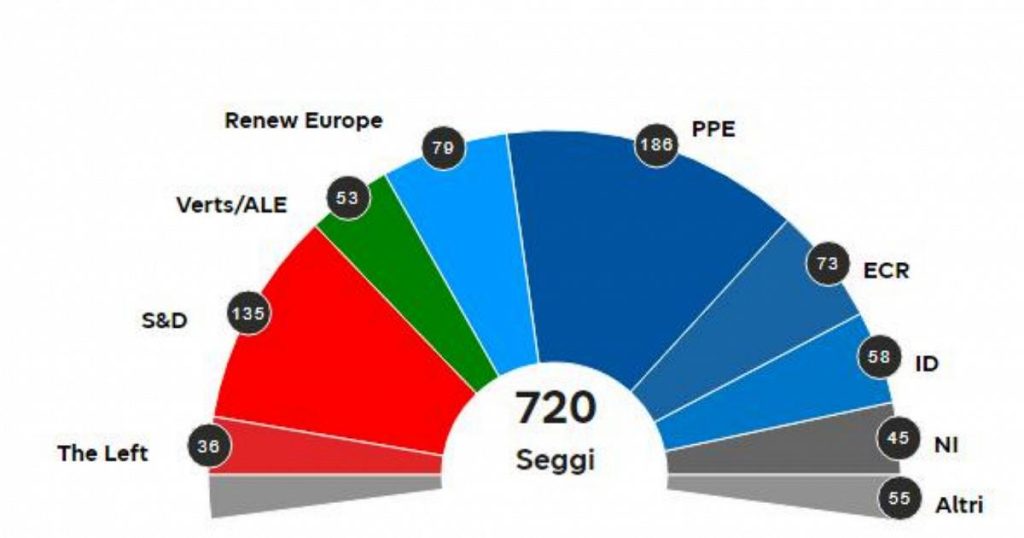The 2024 European elections have seen a rise of right-wing parties across Europe, particularly in countries like France and Germany. This shift has shaken the foundations of more pro-European parties and Brussels institutions. The focus now turns to the formation of alliances among different parliamentary groups to support the tenth term of the European Parliament and the Commission. Despite this surge in right-wing parties, projections suggest that the current majority in the European Parliament, composed of pro-European forces (PPE, S&D, Renew), will remain in control of the 720 seats in the 27 Member States of the Union.
Outgoing Commission President Ursula von der Leyen, representing the PPE, has expressed her desire for a strong and capable Europe. She emphasized the need for continuity in turbulent times and indicated her intention to collaborate with pro-European, pro-Ukraine, and pro-rule of law factions, including the Socialists and Liberals. Von der Leyen also left the door open for cooperation with other groups, such as the Greens. The majority Ursula bloc comprising PPE, S&D, and Renew is projected to secure 400 seats in the Parliament, well above the relative majority of 361.
The calculations reveal that the PPE remains the largest political group with 186 seats, followed by the S&D with 135 seats and Renew with 79 seats. These three groups, forming the majority Ursula bloc, are expected to reach 400 seats. If an alliance is formed with the ECR group, led by Giorgia Meloni, which holds 73 seats, the total would reach 473. Alternatively, joining forces with the Greens, who have 53 seats, would result in a total of 453 seats for the new European Parliament.
There is also the possibility of a majority center-right coalition, comprising the ECR, the ID group (including Rassemblement National and Lega), and other center-right parties, with a total of 396 seats. The remaining groups include the Left, with 36 seats, and the non-attached members, totaling 45 MEPs. The non-attached members, with their independent stance, could impact crucial votes in the Parliament.
These results indicate a complex political landscape in the European Parliament post-elections, with discussions and negotiations underway for the formation of alliances and the composition of the new Parliament. The rise of right-wing parties has challenged the traditional pro-European forces, leading to a potential reconfiguration of power dynamics within the EU institutions. The coming period will be crucial in determining the direction of European policies and priorities under the new leadership in Brussels.














